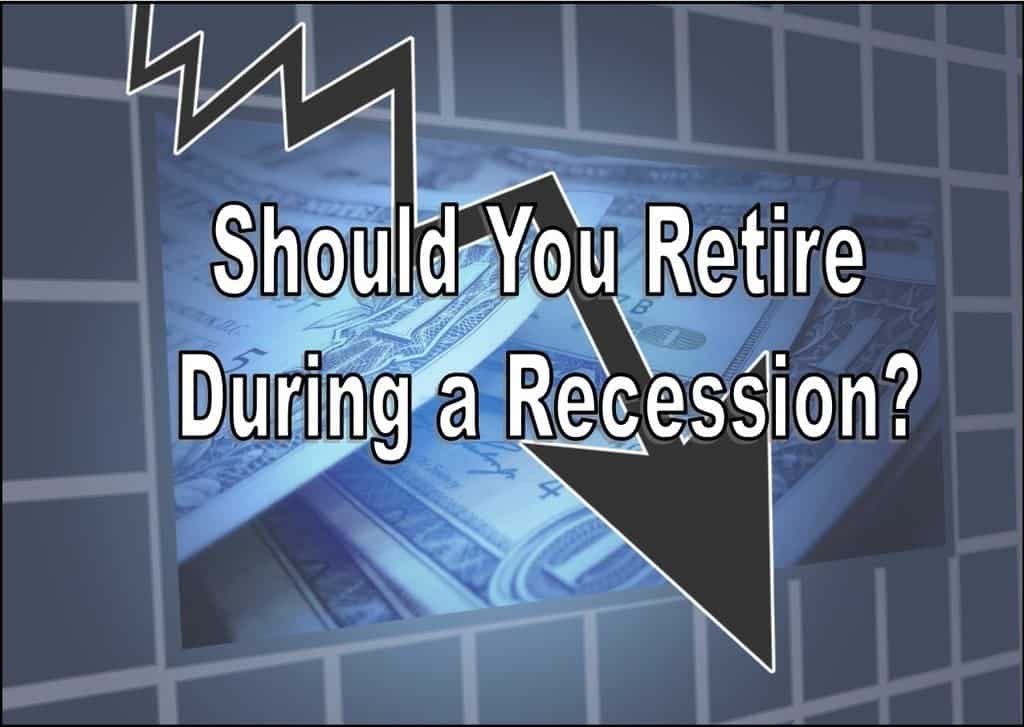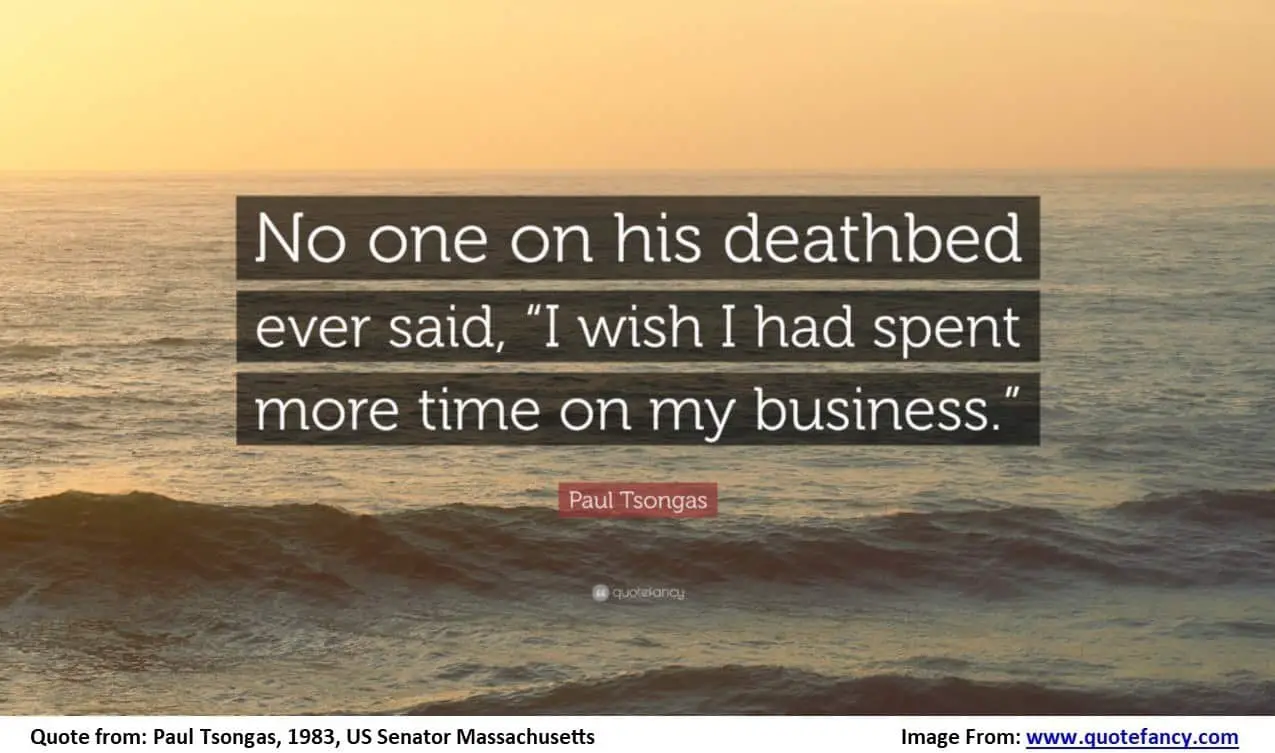Unlike the flu bug, novel coronavirus (or COVID-19) has become a world-wide pandemic! And there appears to be no end in sight, in the near future anyways, and we are on the verge of entering into a major recession.
You may be asking yourself, should you retire during a recession that is only deepening during this devastating outbreak?
Assuming you have properly prepared and are ready to leave, the answer is a resounding yes! Even if you are slightly behind, you might want to consider if it really is worth working the extra years.
To temper that thought for a moment, how will your organization cope with the changing landscape? Will it be business as usual with all hands-on-deck?
Or, alternatively, revenues are down which then leads to layoffs and cost containment. It may make more sense to wait and see how things develop.
Your company might offer you an incentive to think about leaving.
Then again, there could be layoffs soon entitling you to severance pay and unemployment benefits (see What You Need to Know About Coronavirus and Unemployment Insurance 2020). In either case, it would be a shame to miss out.
For those that are financially behind, you might think about working for another year or two. In fact, the best time to increase your investments is when the markets are down.
Whether we are in a recession or not should not influence your life plans.
The bottom line is you can always convince yourself there is never going to be a good time to leave. The recent coronavirus pandemic is wreaking havoc with the healthcare system, the economy and our everyday life.
This has severely driven down the financial markets eroding all our hard-earned investments. Whether we have saved enough haunts almost everyone, especially now.
Factors that Delay Retiring
Fear, uncertainty and doubt can paralyze even those who have diligently prepared for years.
The recent coronavirus pandemic and related market decline are enough to spook any sane person even with the strongest constitution.
Net-worth’s have crumbled in a matter of only weeks. Foreign countries have been put in lock down with global restrictions on travel.
No one knows when it all will end and it is only prudent to ask the question should you retire during a recession.
1. Have You Saved Enough?
The greatest concern is outliving our savings. That fear is magnified with a volatile financial market headed south. Historically, we all know the market has always had its ups and downs.
Yet now, here we are in a bear market with every indication of a more disastrous global economic decline. No one likes to see their investments plummet. Our basic survival instinct is to keep working to make up for those losses.
The usual strategy includes, at least, a year’s worth of liquid assets and cash alleviating the need to touch your savings in the event of a market down turn. Right now, that is exactly where we’re headed.
2. Taking the Plunge
Imagine you are right on the edge of the high diving board peering down to the water below! Every hair on your body standing on end as second thoughts bombard you. Will this be the biggest belly flop of your life?
In many respects, this is a fateful decision that can be exceedingly difficult to undo.
Studies reveal that if you choose to return to the workforce, only one in ten will ever earn a comparable salary after leaving their initial job.
During these recessionary times, that figure would be optimistic at best.
3. Health Care Costs
Employer benefits and healthcare insurance are far more valuable than most of us are aware. Until you turn 65 and are eligible for Medicare, COBRA or other private health insurance will be expensive. On top of the premiums, there will still be deductibles, co-pay, and coverage limits.
After learning the full cost of coverage, an extra year or two of working may not seem quite as daunting. Healthcare costs have and always will be a wild card.
None of us knows how many years we’ll survive, what our health will be or what the expenses will be.
An average 65-year-old American couple are estimated to spend about $285,000 in healthcare costs throughout their senior years (see 7 Ways to Reduce Healthcare Costs in Retirement). And that does not include long-term care, if required.
4. What Are You Retiring to?
Especially during these troubled times, we are advised to stay at home and practice social distancing. This also means most of us are spending more time with our spouses.
For some, this is a good thing. For others, it might be starting to wear a little thin with cabin fever setting in. Recognize that, like now after leaving work you’ll be spending a lot of time together.

What to do in retirement becomes a looming question. Most of us have had it on the backs of our minds over the years. We may have a few projects or travel destinations, after that we’ll figure it out as we go.
In the current state of the nation, most of these dreams will fly out the window, at least for the time being. You might find yourself stuck at home sheltering-in-place.
Unless you have developed some hobbies and interests, it can become a life long sentence of boredom or monotony after all this passes.
Reasons to Take that Next Step, Especially Now
Should you retire during a recession?
While there are lots of reasons to delay retiring, there can be equally compelling arguments to do it while you still have your health, physical and mental.
For many of us, it is time to get off this out of control merry-go-round.
1. Health Risks Due to the Coronavirus Outbreak
Coronavirus (COVID-19) is one of the most contagious infections ever unleashed on mankind. In our modern world, it spreads rapidly threatening almost every country in the world.
European countries with older populations such as Italy, have been hit hard with an ever-mounting death toll. This in spite of massive closures and efforts to contain the disease.
That does not bode well for the U.S. already experiencing massive numbers of new cases. Testing is behind with fears that anywhere from one-quarter to one-half of all Americans will become or are infected.
Hospitals are projected to become overwhelmed due to bed shortages, over worked with reduced or sick staff, and acute shortages of necessary medical supplies.
Health authorities warn that those over the age of sixty are the most vulnerable to complications. This is further heightened by pre-existing medical conditions such as asthma, diabetes, or coronary heart diseases.
The majority of us contemplating retirement are either approaching or are over the age of 60. Even worse, many of us have developed medical conditions weakening our ability to survive an infection.
A vaccine is not expected for at least another 18 months. During this time, self-isolating and social distancing appear to be the most effective strategies.
Even if we get everything under control in the upcoming months, experts warn we are likely to see intermittent flare ups.
Not good news for anyone taking public transit. Until eradicated, going to work could become a matter of life and death.
2. Family Responsibilities
A vulnerable parent or other loved ones may also influence your decision. With the increased risk of transmission, self-isolation becomes the most effective means of prevention.
By taking care of errands for them such as picking up groceries, you minimize their exposure.
Work and school closures have become common place in an attempt to minimize spread. One parent staying at home to look after the kids may not be a viable option. Your choice might be to pitch in and help out hoping this will be a short term fix.
3. Increased Company Cost Cutting Measures
Tough economic times call for equally severe cost cutting measures for businesses. This could come in the form of lay-offs, salary freezes, reduced hours, or any other means to improve profitability.
Older workers are more susceptible to being forced out during these times. For more information, see How to Deal with Forced Retirement.
The trend of “doing more with less” can also result in workers being let go and their positions not being back-filled.
The surviving employee becomes responsible for doing two jobs introducing new responsibilities and increased levels of stress.
4. Changing Job Skills
Most of us do not embrace change very well, especially when it is forced upon us. For example, being told to work from home and participate in video meetings may meet with resistance. Not everyone will flourish in such an environment.
Further, not everyone is tech savvy or even wants to be. Instead of doing what they feel comfortable with, they must learn new skills.
Rather than suffering the frustration and humiliation, these folks may prefer to part ways.
Closing Thoughts on Should You Retire During a Recession?
In light of all that is happening around us, there is no clear-cut answer. It's one only you can answer. If you have properly prepared and want to start the next chapter of your life, do not allow fear and uncertainty hold you back.
Preparation means achieving your desired savings, setting aside a cash reserve of at least a year’s worth of living expenses, and budgeting for healthcare and emergency expenses.
In addition, you’ll want to have a plan in place for what you’re retiring to.



